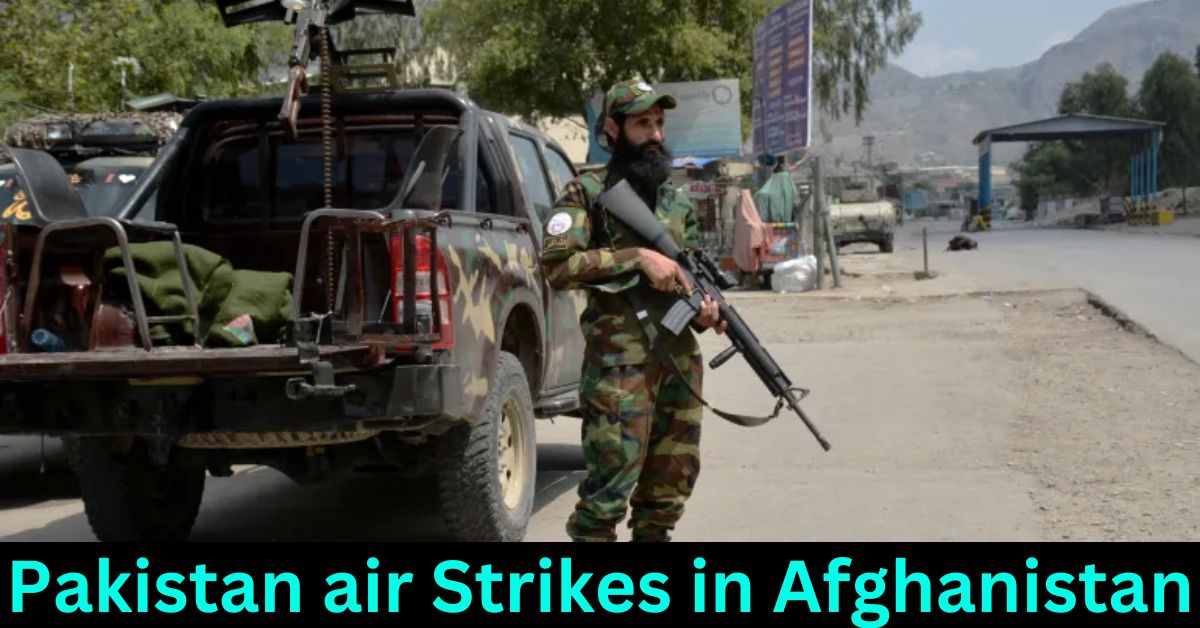Islamabad, Pakistan – Pakistan’s military conducted air raids in Afghanistan on Tuesday night, targeting the hideouts of the Pakistan Taliban (TTP) in the Paktika province. This marks the first such cross-border strike since March 2024 and comes after a surge in TTP attacks in Pakistan.
The Pakistani air strikes, which targeted the Barmal district near Pakistan’s South Waziristan, were confirmed by both Afghan and Pakistani sources. While no official statements were issued by Pakistan’s military or foreign ministry, the Taliban-led Afghan government accused the strikes of killing 46 people, including women and children. The Taliban’s Defence Ministry condemned the air raids, calling them “cowardly” and a violation of Afghan sovereignty. Enayatullah Khowarazami, a Taliban spokesperson, vowed retaliation, asserting that the defense of Afghan territory was an “inalienable right.”
The airstrikes occurred shortly after Pakistan’s special representative for Afghanistan, Mohammad Sadiq, visited Kabul to meet Afghan Foreign Minister Amir Khan Muttaqi. The visit, which included talks about improving bilateral relations, is now overshadowed by the recent military actions.
Rising Tensions and Attacks
The Pakistan Taliban, operating from sanctuaries in Afghanistan, has been a significant source of tension between the two countries. Pakistan accuses the Afghan government of harboring TTP militants who carry out cross-border attacks targeting Pakistani security forces. Last week, the TTP claimed responsibility for a deadly attack on Pakistani soldiers, which led to the deaths of 16 personnel in South Waziristan.
Despite Afghanistan’s denials, Pakistan asserts that the TTP operates from safe havens inside Afghan territory. According to Pakistani diplomats, the TTP has about 6,000 fighters in Afghanistan, with their activities posing a daily threat to Pakistan’s security.
Strategic and Diplomatic Challenges
The air raids are seen as part of Pakistan’s broader military campaign, Azm-e-Istehkam, aimed at countering TTP insurgents. Security analysts suggest that the strikes may be part of an effort to address the rising attacks against Pakistani forces. However, the attacks have also deepened the rift between Pakistan and Afghanistan, undermining diplomatic efforts for peace.
Some analysts argue that Pakistan’s policy towards Afghanistan remains inconsistent, with actions such as cross-border air strikes being reactive rather than part of a cohesive strategy. Ihsanullah Tipu, a security analyst, also suggested that while Afghanistan may retaliate, the TTP could respond directly to Pakistan, with potential revenge attacks already being discussed within the group.
Impact on Pakistan-Afghanistan Relations
The strikes are expected to further strain relations between Pakistan and Afghanistan, particularly as both countries grapple with increasing violence. While the international community has largely refrained from criticizing Pakistan’s actions, these events highlight the ongoing challenges in managing the TTP threat and the broader security situation in the region.
The hope for improved ties, especially after Sadiq’s visit to Kabul, now faces significant setbacks, as cross-border military actions and accusations of harboring militants continue to overshadow diplomatic progress.
